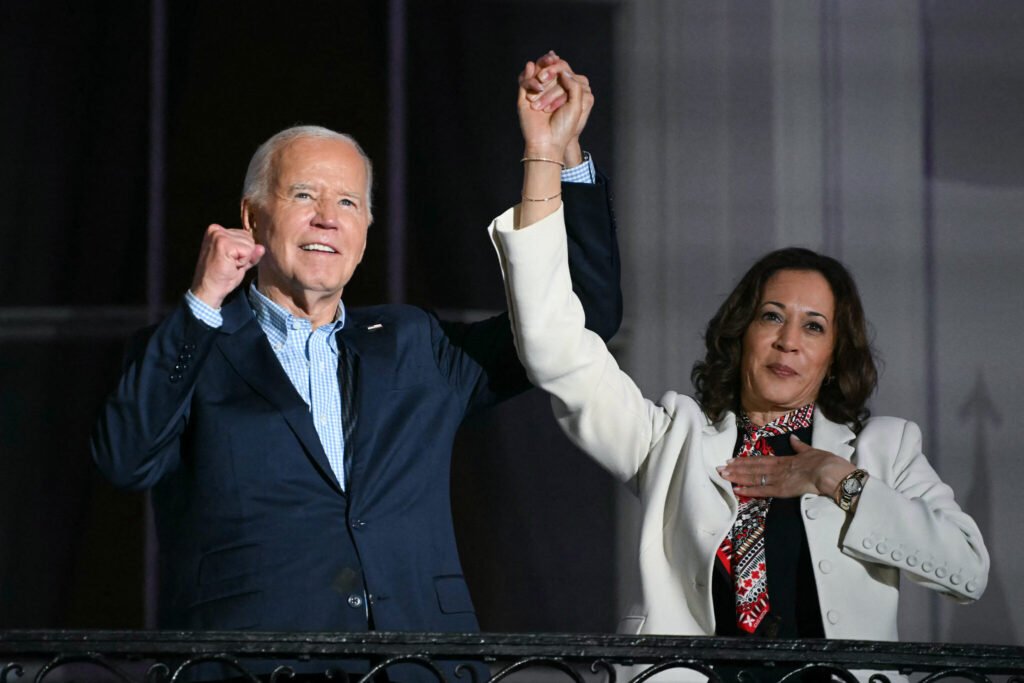Basil Odilim
Kamala Harris is officially the Democratic presidential nominee, but Donald Trump continues to describe her elevation to the top of her party’s ticket as “unconstitutional” and accuses her of participating in a “coup.” — CNN
Kamala Harris, who Trump has disparaged, is facing unprecedented attacks. “Trump isn’t just losing the election. He’s losing his mind,” says USA Today.
Trump’s insults against Harris, including comments like “For nearly four years Kamala has crackled [cackled] as the American economy has burned,” reflect his inflammatory rhetoric.
Bernard Goldberg contends that “Donald Trump needs an intervention. He needs his friends and political allies to lock him in a room, sit him down, look him in the eye and tell him that if he doesn’t change his ways, he’s probably going to lose in November.” #BernardGoldberg
We anticipated that this moment would eventually arrive. Given the gravity of the situation, there are valid arguments for delaying Trump’s sentencing until after the election or scheduling it just before. The U.S. Constitution, meticulously crafted by our founding fathers, firmly establishes that no citizen—regardless of status or position—is above the law. This principle is a cornerstone of the American Republic, ensuring that justice remains blind and impartial.
Trump’s actions and subsequent legal battles appear to challenge the very foundation of this constitutional principle. Despite the respect and deference afforded to him as a former president, he is not exempt from accountability. The timing of his sentencing is not just a matter of legal procedure but also one of profound national significance, raising questions about the integrity of the electoral process, the rule of law, and the future of democratic governance in the United States.
We are only beginning, and Trump is already feeling the heat. The strategic decision to replace Biden with Harris immediately after Trump’s confirmation as the Republican presidential nominee amid his insults against Biden and the Democrats marked the start of a complex political chess game. This move can be likened to the biblical analogy of serving the best wine last. Just as the master of the feast praised the host for saving the best wine for later, this strategy aligns with military principles advocated by figures like Sun Tzu, Alexander the Great, and Napoleon, who emphasized the importance of decisive actions at critical moments. This is not a coup but a carefully planned maneuver to optimize effectiveness.
Similar to how Congress acted to limit the presidency to two terms following Franklin D. Roosevelt’s unprecedented four-term tenure, there must be corresponding measures to address the problem of endless inflammatory rhetoric in modern election campaigns—an issue exacerbated by Trump. Just as the 22nd Amendment aimed to prevent excessive concentration of power in the presidency, Congress should consider establishing regulations to curb incendiary language and ensure campaigns remain civil. This step is crucial given Trump’s relentless inflammatory rhetoric, which undermines constructive debate and erodes civil discourse.
Inflammatory statements have increasingly characterized modern election campaigns, often overshadowing substantive debate and damaging civil discourse. While such statements fall under free speech protections, the First Amendment does not shield all forms of expression. The U.S. Constitution safeguards a wide range of speech, including offensive or controversial expressions, based on the belief that a free society must allow diverse opinions, even those that provoke or offend.
However, election campaigns present unique challenges. The U.S. Supreme Court has identified certain types of speech that are not protected due to their potential harm to public safety and social order. Speech that incites imminent lawless action or constitutes true threats—where the speaker intends to provoke unlawful behavior or communicates a serious intent to commit violence—falls outside protected speech.
Election campaigns should prioritize constructive dialogue over divisive rhetoric. The use of “fighting words” intended to incite violence and forms of obscenity or defamation that damage reputations or violate community standards, undermine the integrity of the electoral process, and threaten democratic governance.
Fostering a civil approach to election campaigns ensures that debates focus on ideas, policies, and the future of the nation rather than on rhetoric that deepens societal divisions. Balancing free expression with the need to maintain social order and protect individuals is an ongoing challenge in democratic societies. Promoting civility in election campaigns is essential for upholding democratic principles and ensuring that all voices are heard and respected.
Ultimately, the judgment on Trump’s case will resonate deeply within American society, shaping the nation’s future for years to come. Whether his sentencing occurs before or after the election, the manner in which America handles this situation will reflect the American commitment to the rule of law and the integrity of its democratic processes.
